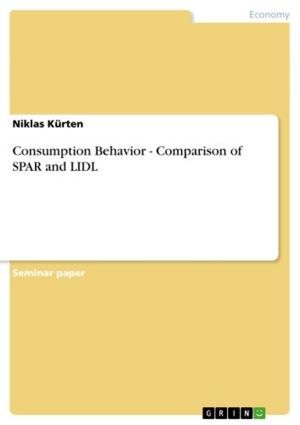Dyslexia - the problem of proper reading
the problem of proper reading
Nonfiction, Entertainment, Drama, Anthologies| Author: | Claudia Wipprecht | ISBN: | 9783638812795 |
| Publisher: | GRIN Publishing | Publication: | June 13, 2007 |
| Imprint: | GRIN Publishing | Language: | English |
| Author: | Claudia Wipprecht |
| ISBN: | 9783638812795 |
| Publisher: | GRIN Publishing |
| Publication: | June 13, 2007 |
| Imprint: | GRIN Publishing |
| Language: | English |
Seminar paper from the year 2006 in the subject English Language and Literature Studies - Linguistics, grade: 1,7, University of Erfurt (Philosophische Fakultät), course: Zweitsprachenerwerb, 8 entries in the bibliography, language: English, abstract: Reading is not considered a natural skill but has to be acquired. Many people consider this proficiency 'world class' (Nicolson/Fawcett, 2001: 146). However, a lot of people have problems with acquiring this skill due to several difficulties, mostly subsumed under the term of 'dyslexia'. Developmental dyslexia is seen as the most common developmental disorder in Western school populations and affects four times as many boys as girls (Fawcett, 2002: 265). It was not until the 1970's that dyslexia has been recognized as a specific learning difficulty. Rutter et al. (1970) and Yule et al. (1974) established specific reading difficulties and contributed to the acceptance of dyslexia. The problems were seen either extrinsic to the child, e.g. to do with society and school teaching, or intrinsic, i.e. within the child, which were to do with intelligence and gross neurological problems. By 1989 the International Dyslexia Association provided an expanded and clearer definition that highlights the range of difficulties dyslexic students may experience: 'Specific Learning Difficulties can be defined as organizing or learning deficiencies which restrict the students' competencies in information processing, in motor skills and working memory, so causing limitations in some or all of the skills of speech, reading, spelling, writing, essay writing, numeracy and behavior.' (Dyslexia, 1989) However, this is still a 'deficit' definition. Nowadays, dyslexia is seen as an individual difference in learning style. It is important for teachers to understand the nature of the reading and spelling process, as well as how it develops in children. Surprisingly, there is little of this in teacher training. It is fundamental to look at the processes that are involved in what we are going to teach, not only to provide us with an understanding of what is required but also to examine the areas where some children might find certain skills particularly difficult (ibid: 91). In my paper I will focus on the reading abilities of two of my private students who are both dyslexics. I try to find out whether the theoretical features of dyslexia made by researchers can be applied to these students. The aim of this paper is to draw a conclusion on whether the two students have difficulties in reading and how this is reflected in the prepared data.
Seminar paper from the year 2006 in the subject English Language and Literature Studies - Linguistics, grade: 1,7, University of Erfurt (Philosophische Fakultät), course: Zweitsprachenerwerb, 8 entries in the bibliography, language: English, abstract: Reading is not considered a natural skill but has to be acquired. Many people consider this proficiency 'world class' (Nicolson/Fawcett, 2001: 146). However, a lot of people have problems with acquiring this skill due to several difficulties, mostly subsumed under the term of 'dyslexia'. Developmental dyslexia is seen as the most common developmental disorder in Western school populations and affects four times as many boys as girls (Fawcett, 2002: 265). It was not until the 1970's that dyslexia has been recognized as a specific learning difficulty. Rutter et al. (1970) and Yule et al. (1974) established specific reading difficulties and contributed to the acceptance of dyslexia. The problems were seen either extrinsic to the child, e.g. to do with society and school teaching, or intrinsic, i.e. within the child, which were to do with intelligence and gross neurological problems. By 1989 the International Dyslexia Association provided an expanded and clearer definition that highlights the range of difficulties dyslexic students may experience: 'Specific Learning Difficulties can be defined as organizing or learning deficiencies which restrict the students' competencies in information processing, in motor skills and working memory, so causing limitations in some or all of the skills of speech, reading, spelling, writing, essay writing, numeracy and behavior.' (Dyslexia, 1989) However, this is still a 'deficit' definition. Nowadays, dyslexia is seen as an individual difference in learning style. It is important for teachers to understand the nature of the reading and spelling process, as well as how it develops in children. Surprisingly, there is little of this in teacher training. It is fundamental to look at the processes that are involved in what we are going to teach, not only to provide us with an understanding of what is required but also to examine the areas where some children might find certain skills particularly difficult (ibid: 91). In my paper I will focus on the reading abilities of two of my private students who are both dyslexics. I try to find out whether the theoretical features of dyslexia made by researchers can be applied to these students. The aim of this paper is to draw a conclusion on whether the two students have difficulties in reading and how this is reflected in the prepared data.















